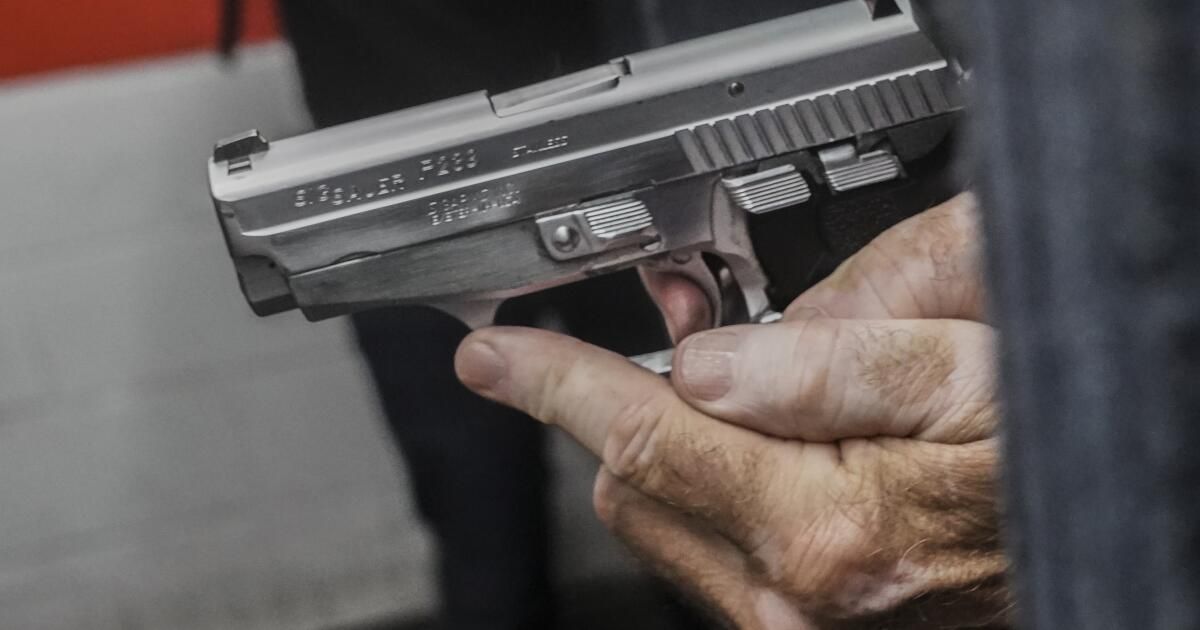On Friday, the Supreme Court placed new limits on the Second Amendment, ruling that dangerous people who have threatened their domestic partners can be denied the right to keep guns.
The 8-1 decision upholds federal and state laws that take guns away from people who are subject to domestic violence restraining orders.
“Since their founding, our nation's firearms laws have included provisions that prevent people who threaten to cause physical harm to others from misusing firearms,” said Chief Justice John G. Roberts Jr., writing for the court.
The result shows that conservative judges are willing to restrict the Second Amendment. The court overturned a ruling by the conservative Fifth Circuit Court of Appeals in New Orleans, which had struck down part of the Violence Against Women Act. The law authorizes judges to take guns away from people who pose a “credible threat” to a domestic partner or child.
In the past, gun rights advocates had argued that a responsible, law-abiding person has the right to have a gun to defend themselves, and the Supreme Court agreed. Two years ago, judges ruled in favor of gun owners in New York, saying they had the right to apply for a permit to carry a concealed weapon when leaving home.
But the justices were unwilling to rule that the Second Amendment protects the rights of dangerous people who have threatened others.
“An individual whom a court finds to pose a credible threat to the physical safety of another may be temporarily disarmed pursuant to the Second Amendment,” the chief justice said. Equally important is that seven other judges were willing to subscribe to his opinion.
Justice Clarence Thomas, author of the New York opinion two years ago, dissented only on Friday.
It is not easy to describe the defendant in the case before the court as law-abiding or responsible. Texas police said Zackey Rahimi was a drug dealer who had shot at people and cars five times in one month in December 2020.
They said he had shot up the home of a man he said had been “talking trash” about him on social media. He also shot a driver after getting into a car accident and fired wildly into the air “after a friend's credit card was declined at a fast-food restaurant,” prosecutors said.
A year before the five shootings, Rahimi had appeared before a judge in Arlington, Texas, because he had beaten and threatened a girlfriend who had a child with him. He grabbed her in a parking lot, forced her into her car, and shot a passerby who saw what happened. He subsequently threatened to kill the woman if he reported the assault.
The federal Violence Against Women Act of 1994 said judges can enforce restraining orders that remove firearms from someone who has harassed or threatened an “intimate partner” or a child, and who poses a “credible threat.” ”.
The judge issued a two-year restraining order denying Rahimi the right to own firearms and warned him that he would be guilty of a federal crime if he defied the order. Rahimi agreed, but then defied the order, even threatening the woman again.
When police went to arrest Rahimi for the shooting incidents, they found a .45 caliber handgun, a .308 caliber rifle, pistol and rifle magazines, ammunition, approximately $20,000 in cash, and a signed copy of a court restraining order. that prohibited him from having firearms.
He was indicted by a federal grand jury, pleaded guilty to violating the restraining order, and was sentenced to six years in prison.
But last year, the Fifth Circuit Court of Appeals ruled in Rahimi's favor, overturning his conviction and declaring unconstitutional the part of the federal law that denied guns to those accused of domestic violence.
The three-judge panel, which included two appointees of Donald Trump, agreed that it was laudable to “protect vulnerable people in our society” but said that “the Second Amendment right is exercised individually and belongs to all Americans.” … Rahimi, while hardly a model citizen, is nevertheless among those entitled to the guarantees of the Second Amendment.”












